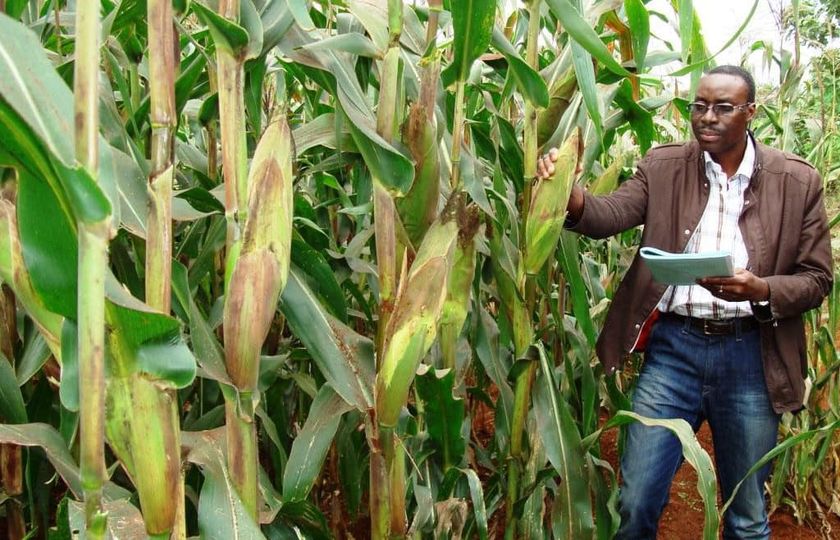There are no products in your shopping cart.
| 0 Items | £0.00 |


Ayo Akinfe
[1] A lot has been written about Western sanctions against Russia but a lot of it is hot air. As we speak, Russia is on course to produce about 90bn tonnes of wheat this year and export revenue looks set to top $8.8bn
[2] In contrast, in 2016, Nigeria imported 650,000 tonnes of maize but this figure reduced to 400,000 in 2018 and 2019. If you are a flour mill or brewery for instance and Nigerian maize is selling for $20 a tonne but imported maize is going for $8 a tonne, surely you are better off importing, especially when the quality is the same, if not better
[3] We are currently the world’s 14th largest maize producer with a meagre annual crop of 10.2m tonnes. Totally inadequate and unacceptable. Nigeria actually needs 15m tonnes of maize a year, so we are still not yet there in terms of quantity. Our first step has got to be to develop hybrid high-yielding seedlings that can boost output by say a quarter within a year. We are clearly under-utilising the agriculture departments in our universities
[4] Our agriculture minister needs to make seedlings, pesticides and herbicides available to farmers at zero interest rates. Their crop will serve as collateral with the loans recovered upon harvest
[5] I would actually start off by setting a target of matching Argentina’s 50m tonnes of maize output in 2023. Of this total, 10m tonnes would be targeted at the livestock and animal feed industry with poultry, cattle, goats and rams firmly in my sights
[6] We should not just grow maize but add value to it and produce finished products like breakfast cereal, bread, beer, gin, etc. Today, Kellogg employs about 33,000 people and has an annual turnover of about $13bn. What does it do? Kellogg converts cereals into breakfast packages. Kellogg now has other products like Pringles, Cheez-It Crackers, Pop Tarts, etc
[7] Nigeria should have a five-pronged line of attack. This should include maize for animal feed, canned maize, maize flour, maize on the cob and maize as an industrial raw material. Our factories would be modular and able to produce all
[8] Last year, Julius Berger announced that it will be diversifying into the agriculture and food business. For me, this is a welcome development as the bane of the Nigerian economy is that we lack productive conglomerates who can mass produce goods. There is absolutely no justification for Nigeria not being the world’s number one breakfast cereal producer. Over the next 10 years, I want to see Julius Berger acquire cereal companies like Kellogg’s, Quaker Oats, Danone, etc. India’s Tata Industries have shown how this can be done when their tea-producing division bought Lipton Teabags
[9] In November 2019, Julius Berger announced its diversification into the oil and gas industry, with the acquisition of a 20% equity stake in Petralon Energy. I see this as the maturing of the Nigerian economy as if you look at every industrialised nation on earth, their economies were driven by about half a dozen large highly diversified conglomerates
[10] By say 2030, the Nigeria I envisage is one dominated by about six massive private conglomerates such as Julius Berger, Innoson Motors, Dangote Industries, NNPC, Man of God PLC and Transcorp. These companies should have a presence in every sector of the economy, employ over 20m people and be floated on the Lagos, New York, London, Frankfurt and Tokyo stock exchanges. Most Nigerians believe the country’s main problem is poor governance but the facts do not support this. Our main problem is a lack of productive capacity